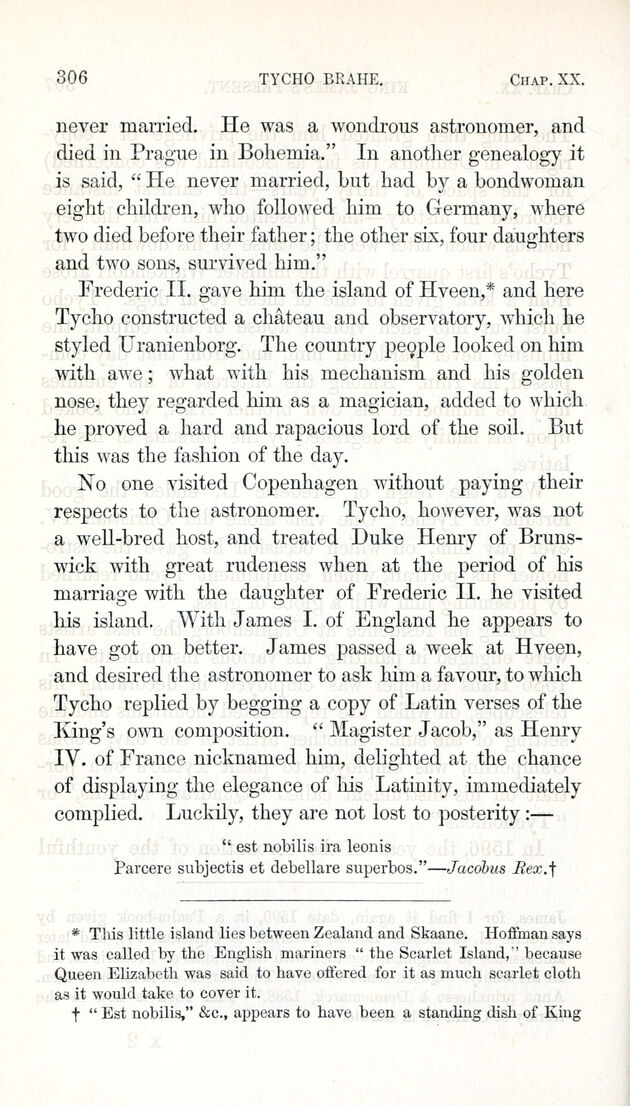
Full resolution (JPEG) - On this page / på denna sida - XX. The island of Hveen

<< prev. page << föreg. sida << >> nästa sida >> next page >>
Below is the raw OCR text
from the above scanned image.
Do you see an error? Proofread the page now!
Här nedan syns maskintolkade texten från faksimilbilden ovan.
Ser du något fel? Korrekturläs sidan nu!
This page has never been proofread. / Denna sida har aldrig korrekturlästs.
306
TYCHO BRAHE.
Chap. XX.
never married. He was a wondrous astronomer, and
died in Prague in Bohemia.” In another genealogy it
is said, “ He never married, but had by a bondwoman
eight children, who followed him to Germany, where
two died before their father; the other six, four daughters
and two sons, survived him.”
Frederic II. gave him the island of Hveen,* and here
Tycho constructed a chateau and observatory, which he
styled Uranienborg. The country people looked on him
with awe; what with his mechanism and his golden
nose, they regarded him as a magician, added to which
he proved a hard and rapacious lord of the soil. But
this was the fashion of the day.
No one visited Copenhagen without paying their
respects to the astronomer. Tycho, however, was not
a well-bred host, and treated Duke Henry of
Brunswick with great rudeness when at the period of his
marriage with the daughter of Frederic II. he visited
his island. With James I. of England he appears to
have got on better. James passed a week at Hveen,
and desired the astronomer to ask him a favour, to which
Tycho replied by begging a copy of Latin verses of the
King’s own composition. “ Magister Jacob,” as Henry
IV. of France nicknamed him, delighted at the chance
of displaying the elegance of his Latinity, immediately
complied. Luckily, they are not lost to posterity :—
“ est nobilis ira leonis
Parcere subjectis et debellare superbos.”—Jacobus Bex.]
* This little island lies between Zealand and Skaane. Hoffman says
it was called by the English mariners “ the Scarlet Island,” because
Queen Elizabeth was said to have offered for it as much scarlet cloth
as it would take to cover it.
f “ Est nobilis,” &c., appears to have been a standing dish of King
<< prev. page << föreg. sida << >> nästa sida >> next page >>